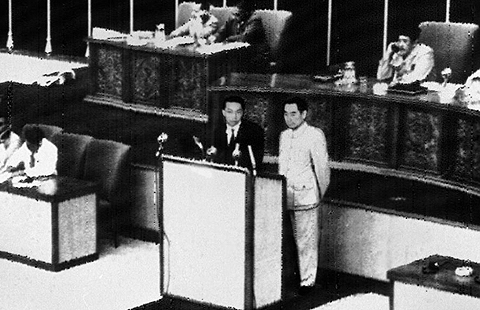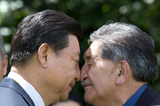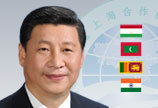
Jakarta banking on AIIB funds
Updated: 2015-04-24 07:31
By Vincent Lingga in Jakarta the Jakarta Post (China Daily)
Comments Print Mail Large Medium Small
Only about two months after the inauguration of President Joko Widodo's government last October, Indonesia decided to join the China-led Asian Infrastructure Investment Bank (AIIB) as a founding shareholder for obvious reasons.
As Southeast Asia's largest economy, yet with acutely poor and inadequate infrastructure, Indonesia badly needs to speed up its infrastructure development to improve connectivity within the vast archipelago and to connect the country with global supply chains.
The president rightly put infrastructure on top of his working programs because high quality infrastructure - from reliable power and water supplies to well built roads, seaports and airports - is central to a country's development.
But the $80 billion financing needed for his ambitious infrastructure development for the next five years is simply not available domestically.
The government will be able to fund only about 20 percent of the needed investment and expects the remaining 80 percent to come from the private sector, but the national private sector, notably banks, is simply unable to put up the shortfall.
The AIIB, launched in Beijing last October with an initial equity capital of $50 billion, is a great alternative source of funds. It will supplement the ASEAN Infrastructure Fund, which was set up in 2012 by members of the Association of Southeast Asian Nations. The Manila-based Asian Development Bank is the administrator of the AIF and provides technical support.
As Indonesia's Finance Minister Bambang Brodjonegoro noted recently, the AIIB will focus on large projects, filling the gap left by other multilateral lending institutions such as the ADB and the World Bank.
Indonesia is confident that the AIIB, led by China, that has the world's biggest foreign exchange reserves, and with the support of almost 60 countries committed to join the bank, will be able to develop into a multilateral infrastructure bank with a high credit rating.
The market also believes that with the participation of so many developed countries, the standards of governance and accountability within the AIIB will be high, thereby further boosting its credit rating.
A high credit rating in turn will create a virtuous circle as the AIIB will then be able to attract additional financing from institutional investors such as pension, insurance and sovereign wealth funds, currently estimated globally at $50 trillion.
A high credit rating is vital for the AIIB because as a non-commercial bank it must depend mainly on the capital market to strengthen its lending resources.
As the bank steadily builds up its reputation, its involvement in a project or a transaction, whether through financing or guarantee support, will give such an undertaking greater credibility with host governments, private investors and lenders.
Good cooperation with the World Bank and ADB, which have long experiences in project financing, could also increase the likelihood that the AIIB will become an efficient supplement to those two development banks.
As the AIIB steadily replenishes its funding resources and develops a broader body of skills and expertise, it will eventually be able to assist public-private partnership centers in Asian countries in formulating enabling laws and regulations.
Hence, on a very positive note, the AIIB has a great chance of becoming an efficient and credible supplement to the World Bank and ADB, which are perceived to be dominated by the United States and Japan, respectively.
Indonesia's participation in the AIIB should also be seen as another step forward in further deepening the economic cooperation between the world's second-largest economic powerhouse and Southeast Asia's largest and most vibrant economy.
Schedule
Chinese President Xi Jinping will visit Pakistan and attend the Asian-African Summit and activities commemorating the 60th anniversary of the Bandung Conference in Indonesia from April 20 to 24.
April 22
Attend the opening ceremony of the Asian-African Summit;
Meeting with Indonesian President Joko Widodo;
April 23
Bilateral meetings;
Attend the closing ceremony of the Asian-African Summit;
April 24
Historical walk from Savoy Homann Hotel to Gedung Merdeka;
Attend activities commemorating the 60th anniversary of the Bandung Conference;
Feature




